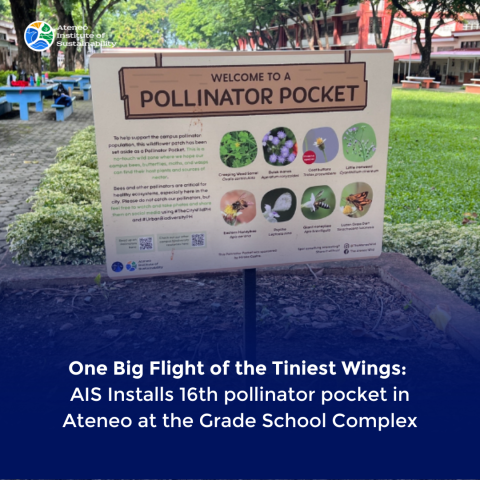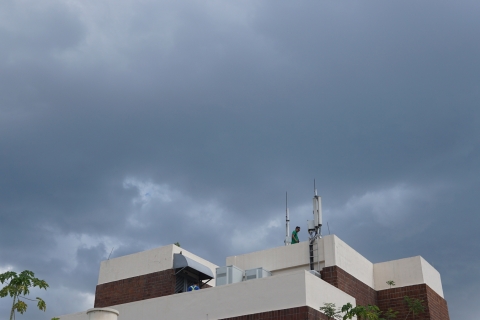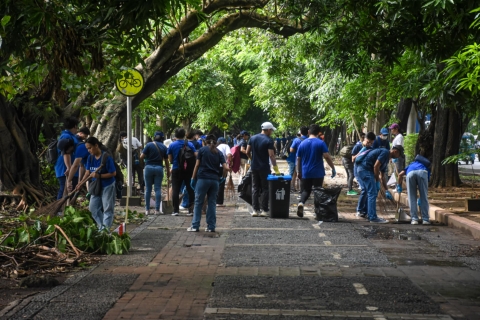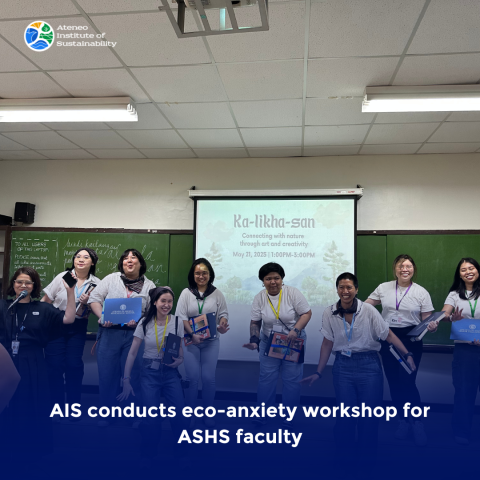‘Powering Tomorrow’: AIS, German Embassy, and GIZ plug renewable energy and a just transition
15 Apr 2025 | By Daniel C Ratilla and Ivy Geraldine Ferrer
Last Thursday, on 10 April 2025, the Ateneo Institute of Sustainability co-hosted a culminating event, “Energy in Transition: Powering Tomorrow,” for the exhibit of the same name, which was located in SEC A Foyer from 07 to 10 April. The exhibit and event were co-hosted by the German Embassy Manila and Deutsche Gesellschaft für Internationale Zusammenarbeit (GIZ) GmbH.

The Ateneo Chamber Singers led in the singing of both the Philippine and German national anthems. As heads of the co-organizing institutions of the exhibit, University President Fr Roberto C Yap SJ and German Ambassador to the Philippines Dr Andreas Michael Pfaffernoschke kickstarted the program with the welcome and opening remarks. Fr Yap emphasized Ateneo de Manila University’s commitment to achieving carbon neutrality by 2050 and the University’s goal to shift to 100% renewable energy across all its campuses, underscoring the importance of community-wide engagement in this endeavor. Meanwhile, His Excellency Ambassador Dr Pfaffernoschke highlighted how initiatives such as the exhibit can foster meaningful collaborations. The traveling exhibit showcased three areas within the global energy transition–renewable energy, mobility, and a just transition. It invited visitors to explore local perspectives from different parts of the globe, reinforcing the idea that grassroots experiences are important to crafting effective global solutions.
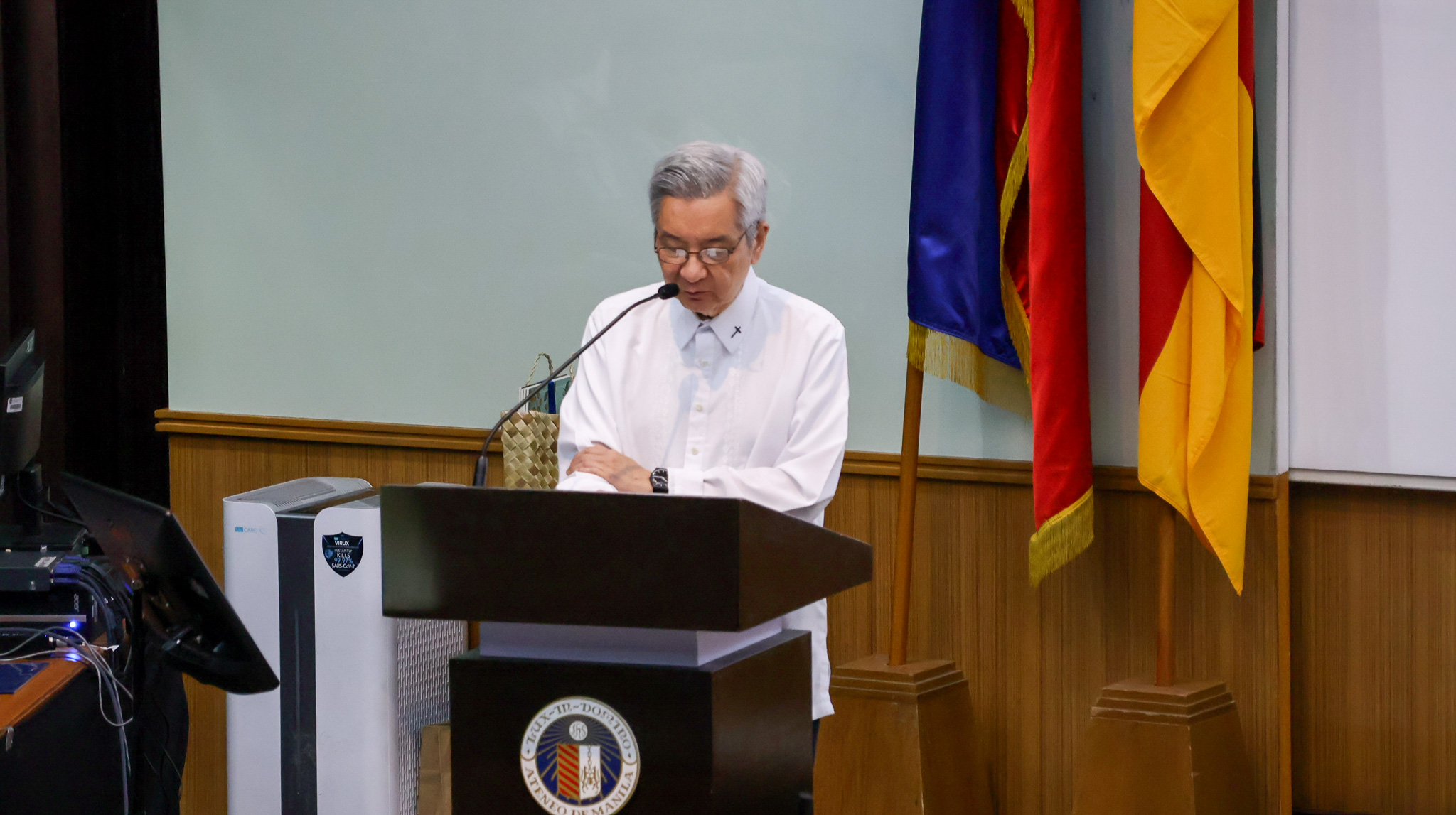
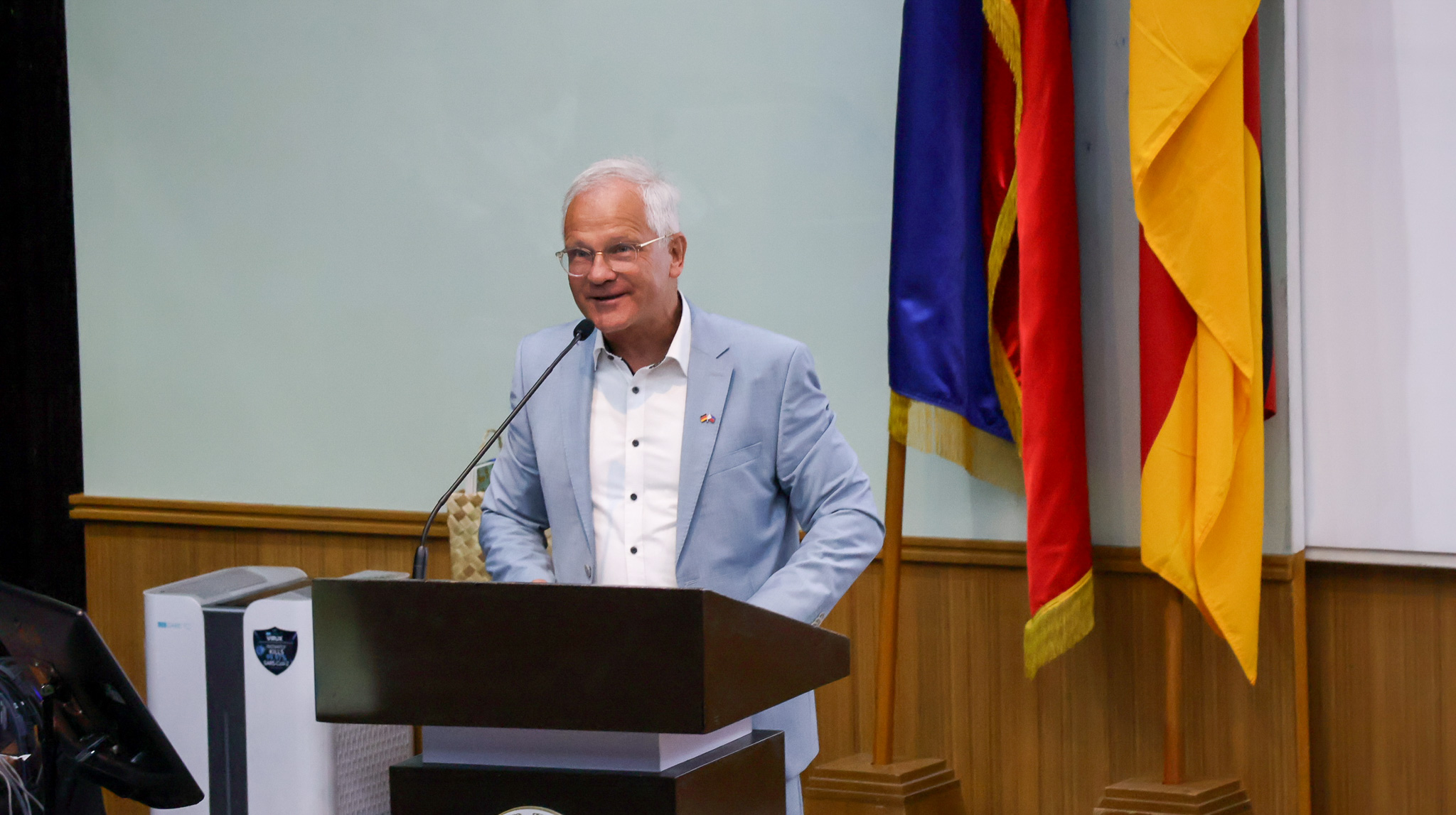
Messages of support were also delivered by Dr Rowena Cristina Guevara, Undersecretary at the Department of Energy, and by Mr Immanuel Gebhardt, Country Director of GIZ Philippines and Pacific Island Countries. Dr Guevara shared how efforts toward an energy transition are a shared responsibility, with the Philippines’ goal of increasing renewable energy to account for 35% by 2030 and 50% by 2040. Likewise, Mr Gebhardt expressed his continued support through ongoing collaborations with the German Embassy and AIS. He emphasized that the long-term pursuit of renewable energy not only advances SDG 7 (Affordable and Clean Energy), but also strengthens partnerships between institutions, ensuring that innovative solutions and best practices are shared, touching also on SDG 17 (Partnerships for the Goals).
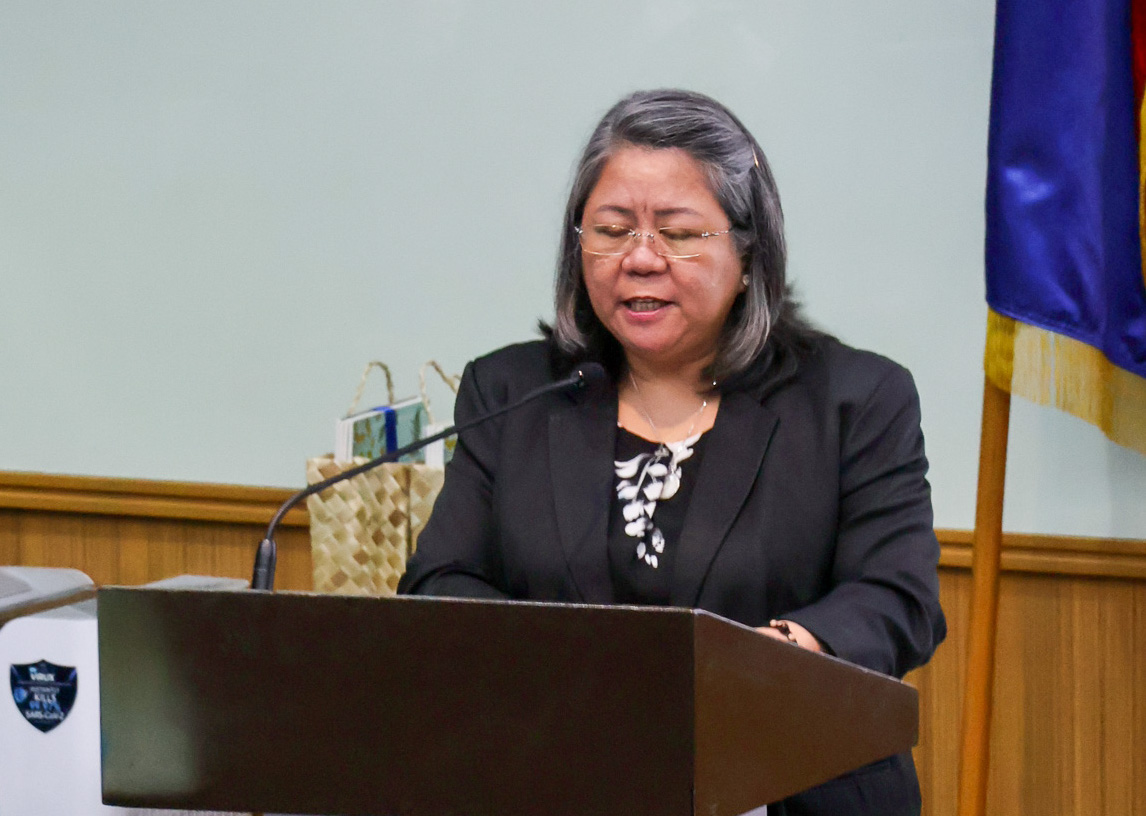
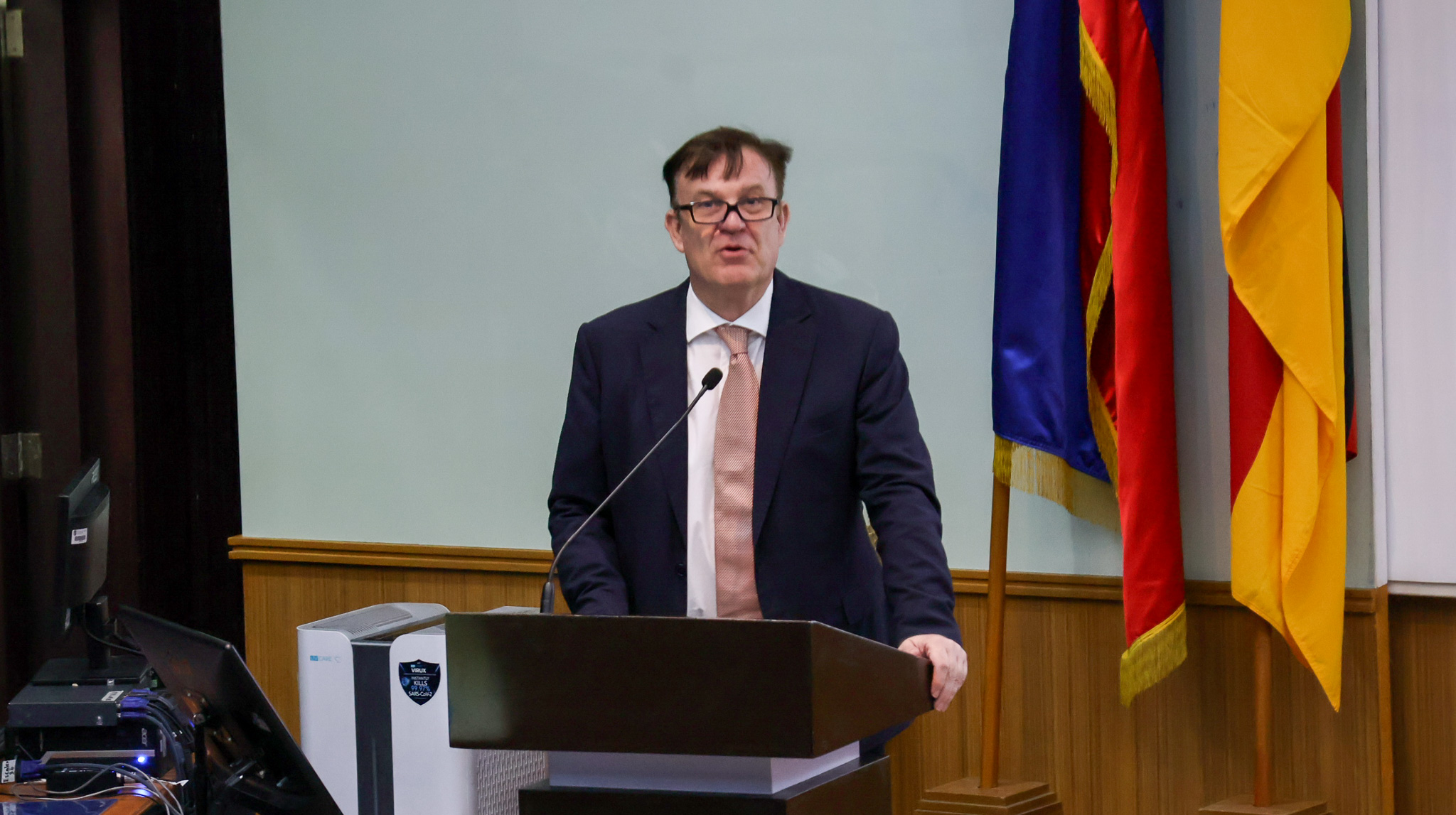
An intermission featuring the Ateneo Chamber Singers followed, led by conductor Jonathan Velasco. This was followed by a keynote message, which was given by Mr Michael Victor N Alimurung, City Administrator of Quezon City, on behalf of Quezon City Mayor Ma Josefina Go Belmonte-Alimurung. Mr Alimurung shared the City’s responsibility in addressing climate change and promoting environmental sustainability through a series of programs, services, and initiatives. He also outlined key strategies undertaken by the City such as the electrification of the bus fleet of the Q City Bus Program and tracking the city’s emissions, with a strong emphasis on accelerating the transition to renewable energy sources.
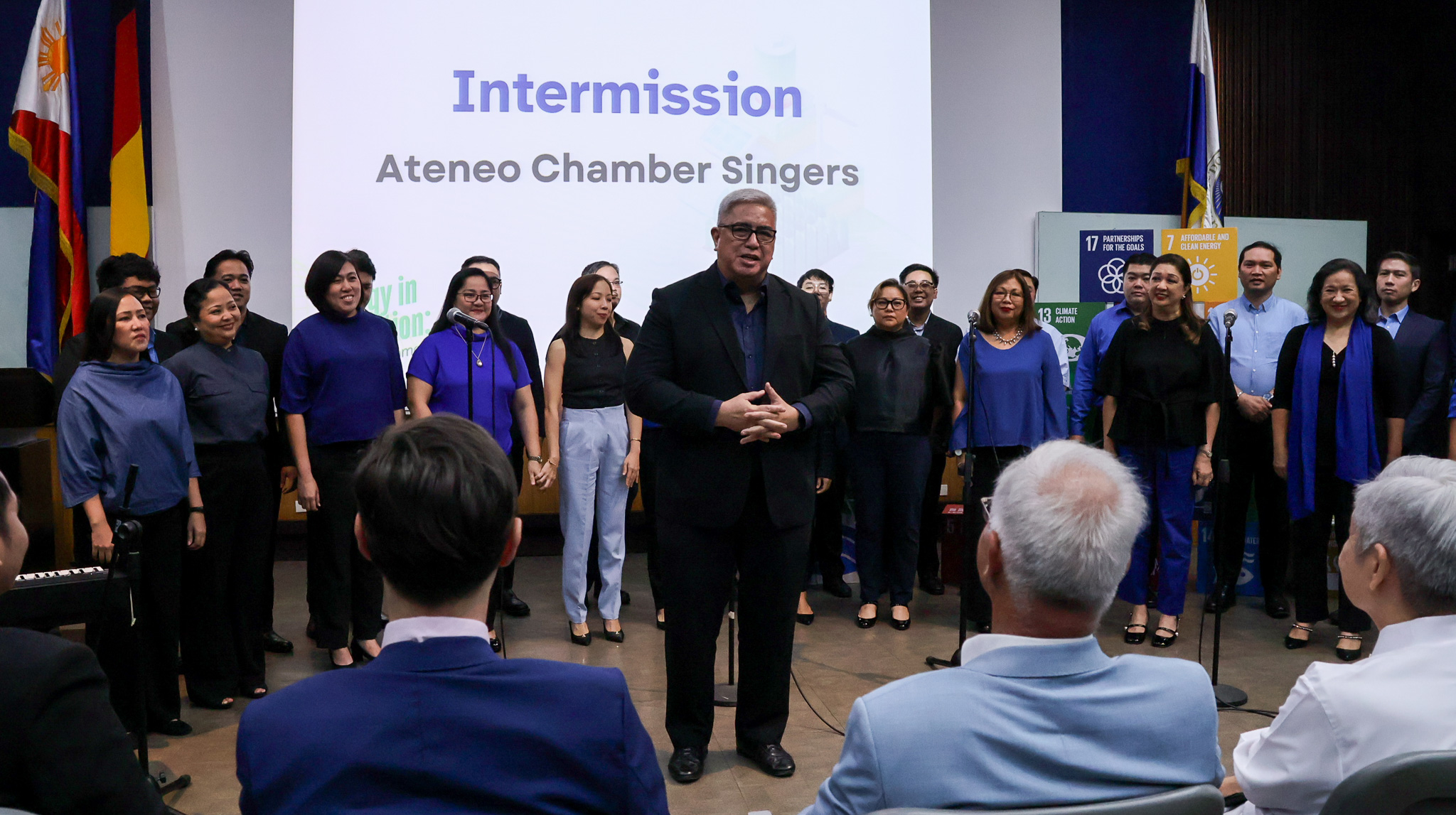
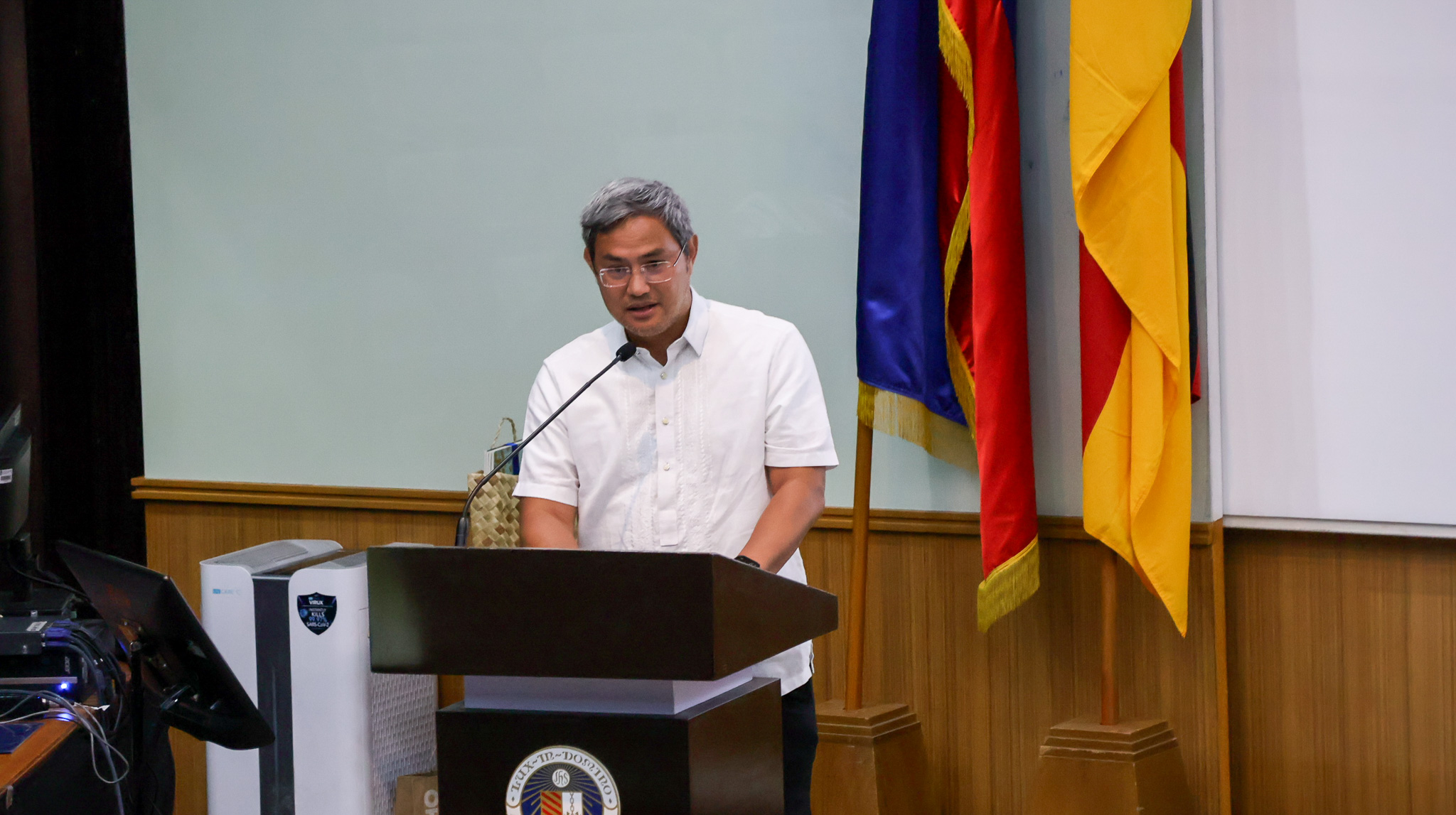
Following this was a keynote talk by Dr Erees Queen B Macabebe, Chair of the Department of Electronics, Computer, and Communications Engineering, which centered on the value of renewable energy and a just transition. In her address, she mentioned the evolving landscape of energy management solutions in the Philippines, emphasizing the growing importance of renewable energy. She also presented current forecasts on renewable energy sources, noting its increasing viability and integration into the country’s energy mix. Central to her message was the importance of collaboration and involvement, stating that energy transition relies not only on technological advancement but also on active engagement and collective action, touching on the social impacts of energy and ensuring a just transition.
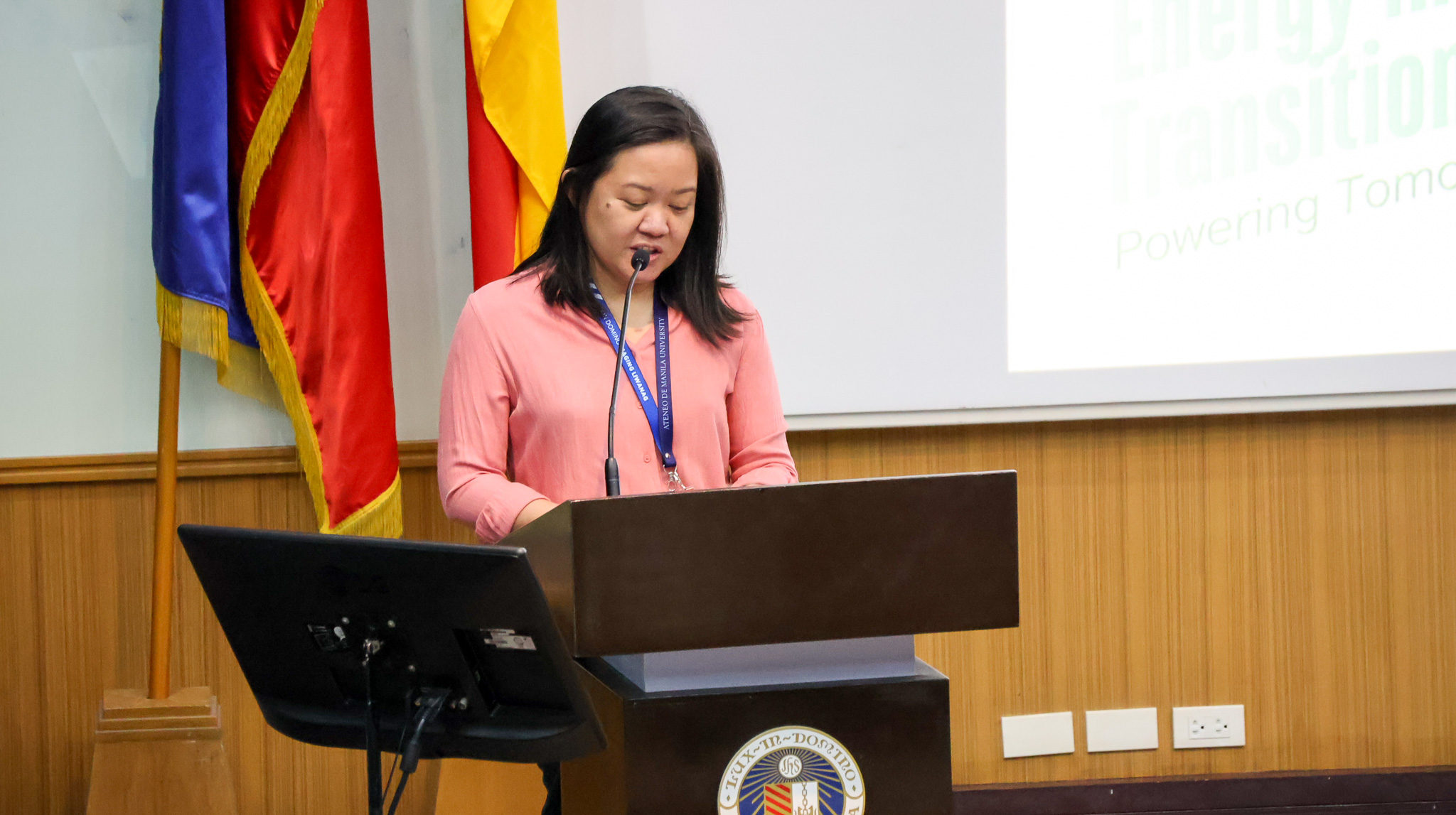
The program concluded with a group photo, and was capped with a lunch and networking for the collaborators and guests from the University and partner institutions.
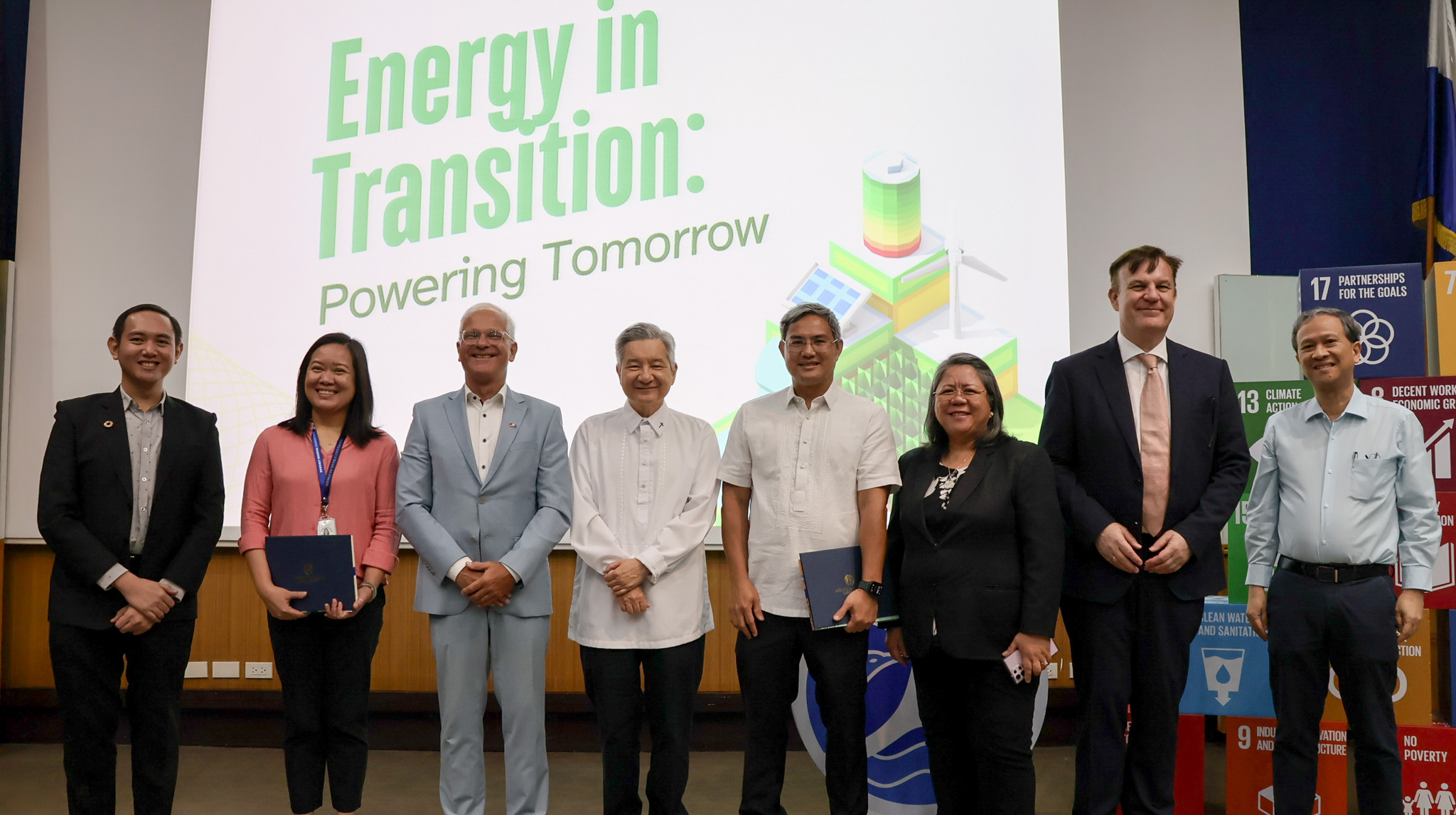
The exhibit was open to the Ateneo de Manila community for three days. Earlier that week, Department of Energy Secretary Raphael P M Lotilla visited the exhibit and expressed his support to just transition initiatives, as well as research on renewable energy.
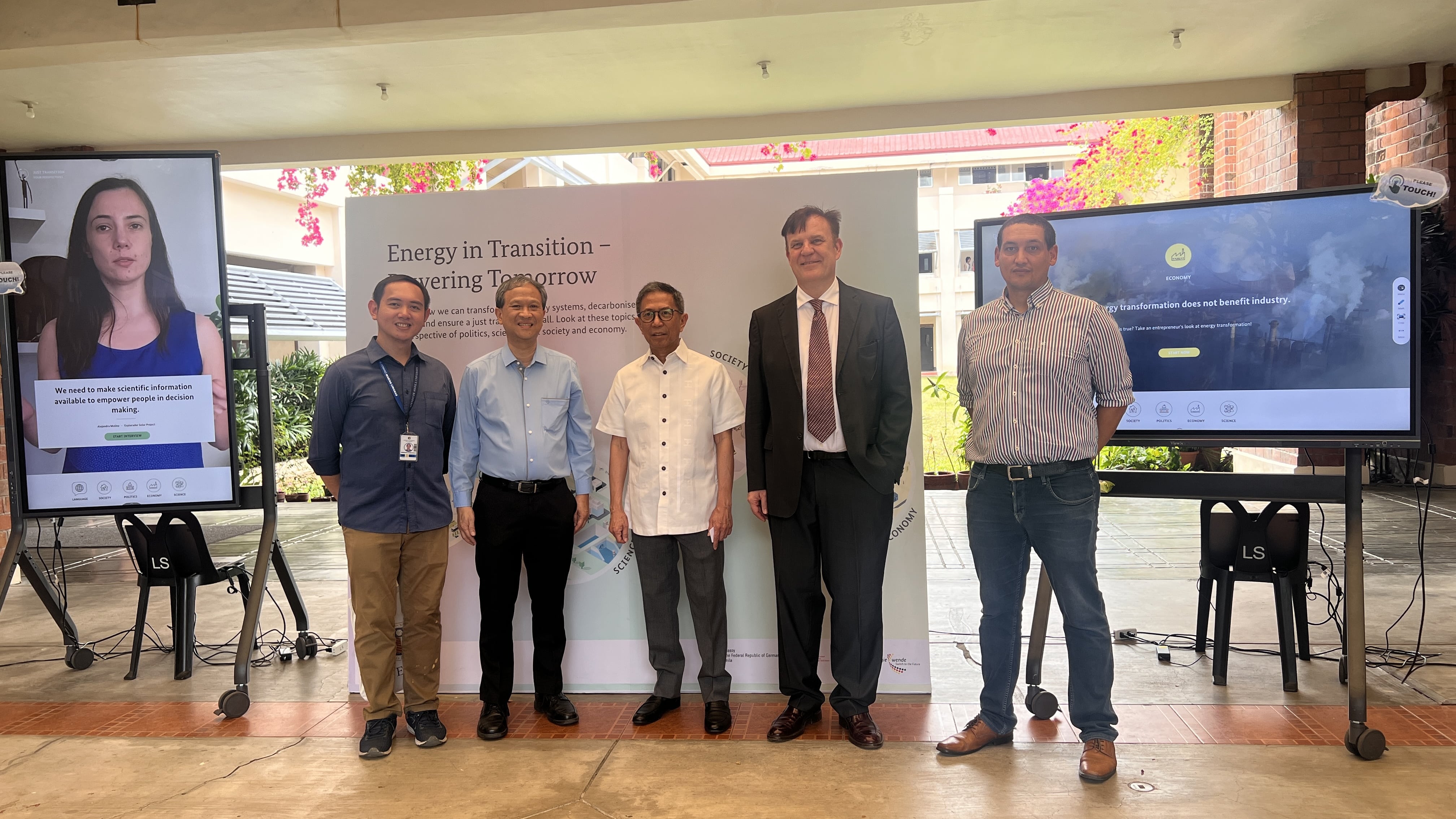
Events such as this show the importance of collaborations and partnerships in attaining broad sustainability- and resilience-related goals. They are avenues for forging new partnerships and deepening existing ones, while strategizing on how we can leverage on each other’s strengths and meet each other’s needs. The different institutions represented in the event represent levers of change and across different sectors, from intergovernmental, national, to the local; across the academe, and civil society. After all, although national and regional boundaries may define how our institutions operate, we all belong to and are affected by the same planetary systems and phenomena.


